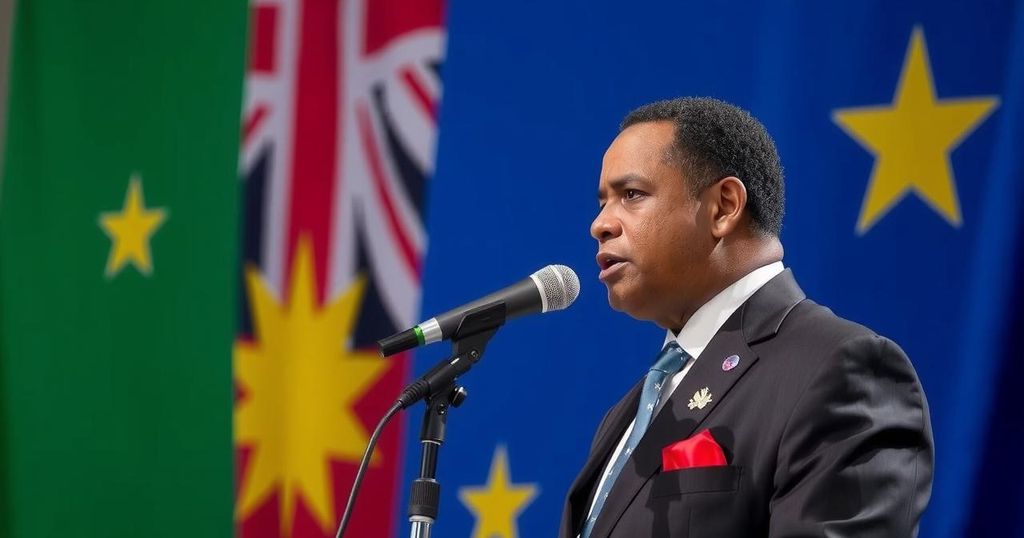Mauritius Prime Minister Pravind Jugnauth conceded defeat in the legislative elections, allowing opposition leader Navin Ramgoolam to potentially reclaim the prime minister’s office. Voter turnout was around 80%, despite controversies surrounding the campaign. The election results reflect a desire for political change in a nation grappling with economic and governance concerns.
In the recent legislative elections held in Mauritius, Prime Minister Pravind Jugnauth conceded defeat as opposition leader Navin Ramgoolam appeared poised to reclaim the prime ministerial position for the third time. Although final results are pending, Jugnauth acknowledged the significant loss for his Lepep alliance, stating, “The people have chosen another team to lead the country,” and extended his best wishes for the future of the nation. Despite a backdrop of political scandals, including a major wire-tapping controversy that surfaced during the campaign, voter turnout reached around 80 percent. Ramgoolam, a prominent figure in Mauritian politics with a family legacy linked to the nation’s independence, expressed confidence in his coalition’s chances. He warned of potential fraud but later indicated a smooth voting process. With economic growth despite rising living costs, emphasis on governance and transparency has come to the forefront as the new government prepares to take charge.
The current political landscape in Mauritius has been significantly shaped by the historical dominance of key political dynasties since the country’s independence from Britain in 1968. Prime Minister Pravind Jugnauth and opposition leader Navin Ramgoolam are both representatives of these influential families. The elections were characterized by a mix of promises to address ordinary citizens’ economic challenges and serious allegations of political misconduct. Mauritius is recognized as a stable democracy with a relatively high GDP per capita, yet concerns about governance have prompted calls for change among the electorate.
In summary, the recent election in Mauritius signifies a potential shift in leadership as Prime Minister Pravind Jugnauth’s acknowledgment of defeat opens the door for Navin Ramgoolam’s return to power. Strong voter participation reflects public engagement in the democratic process, while the opposition’s victory may herald new approaches to governance amid ongoing economic discussions. The ramifications of this election will likely influence the island’s political and economic landscape going forward.
Original Source: www.seychellesnewsagency.com






